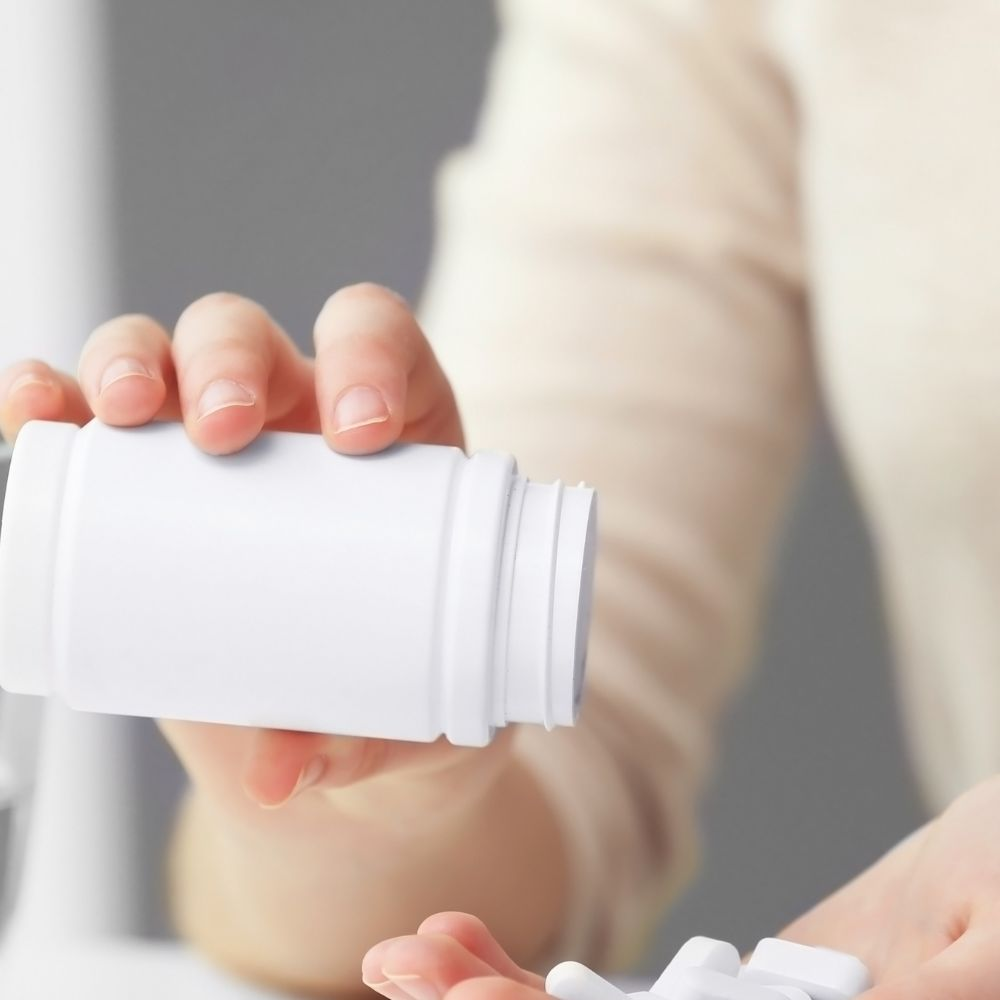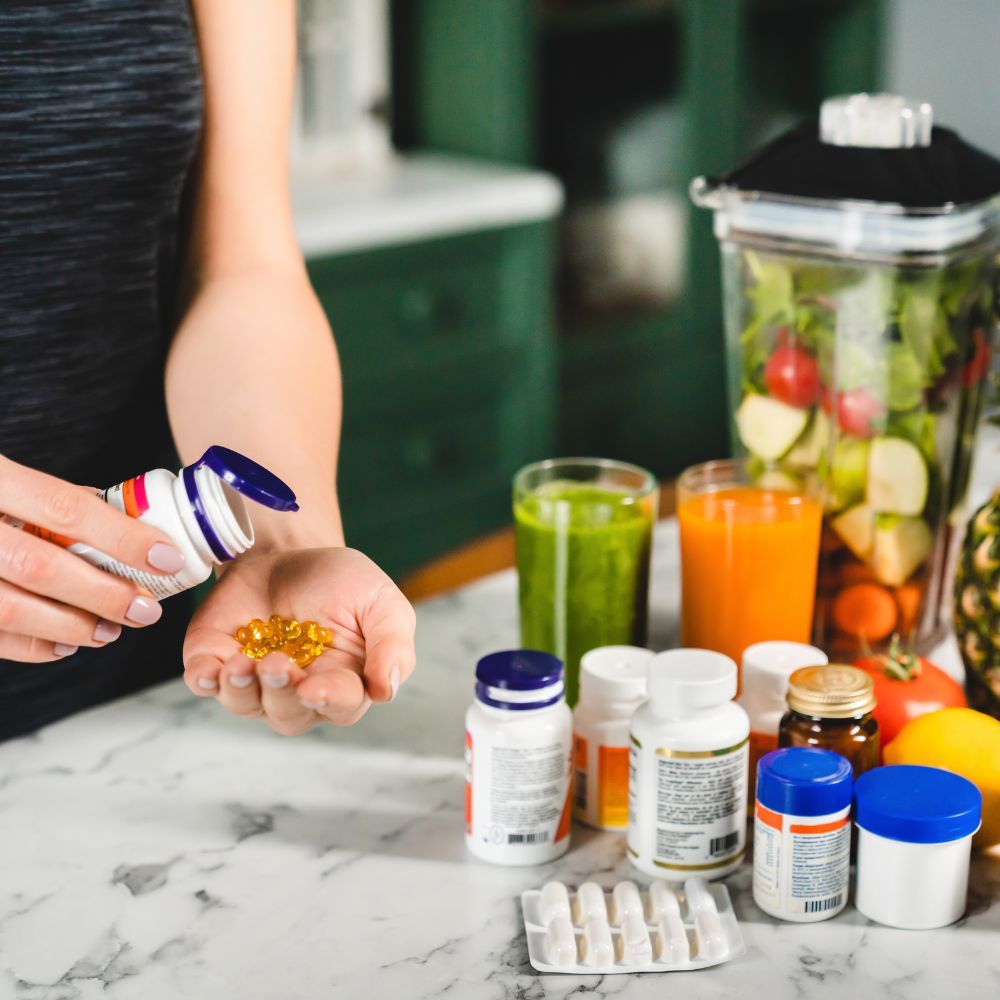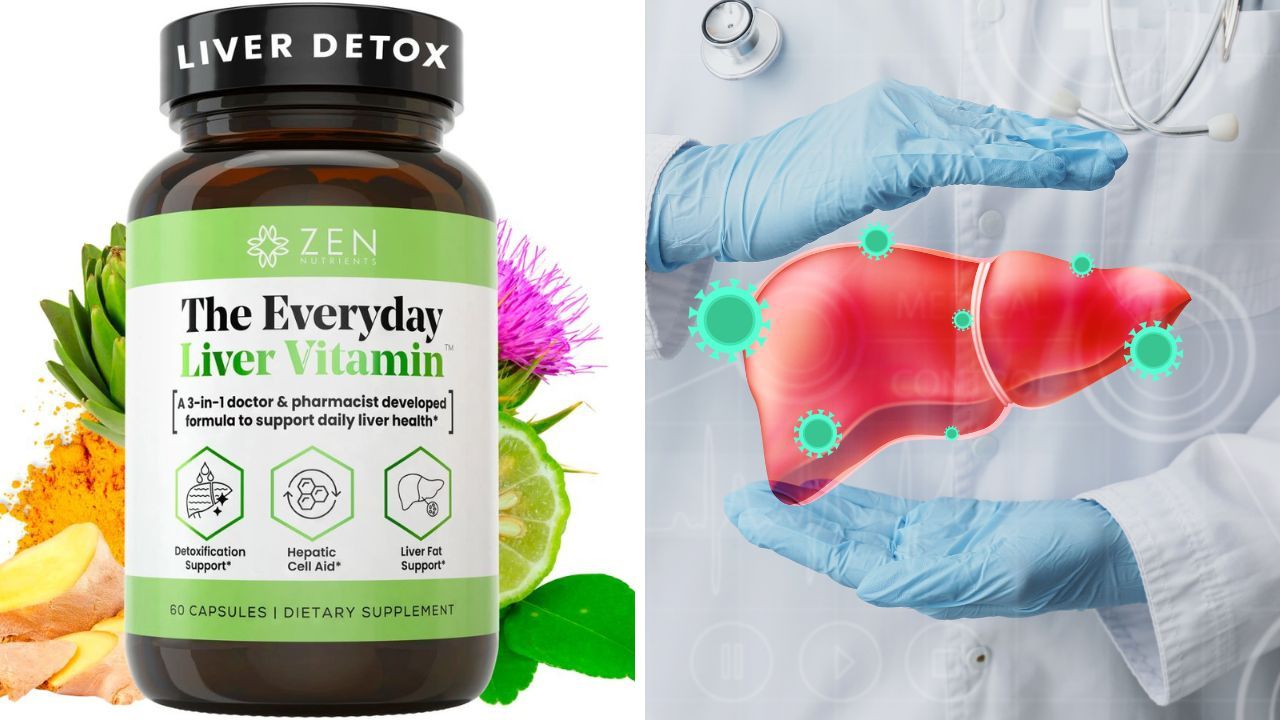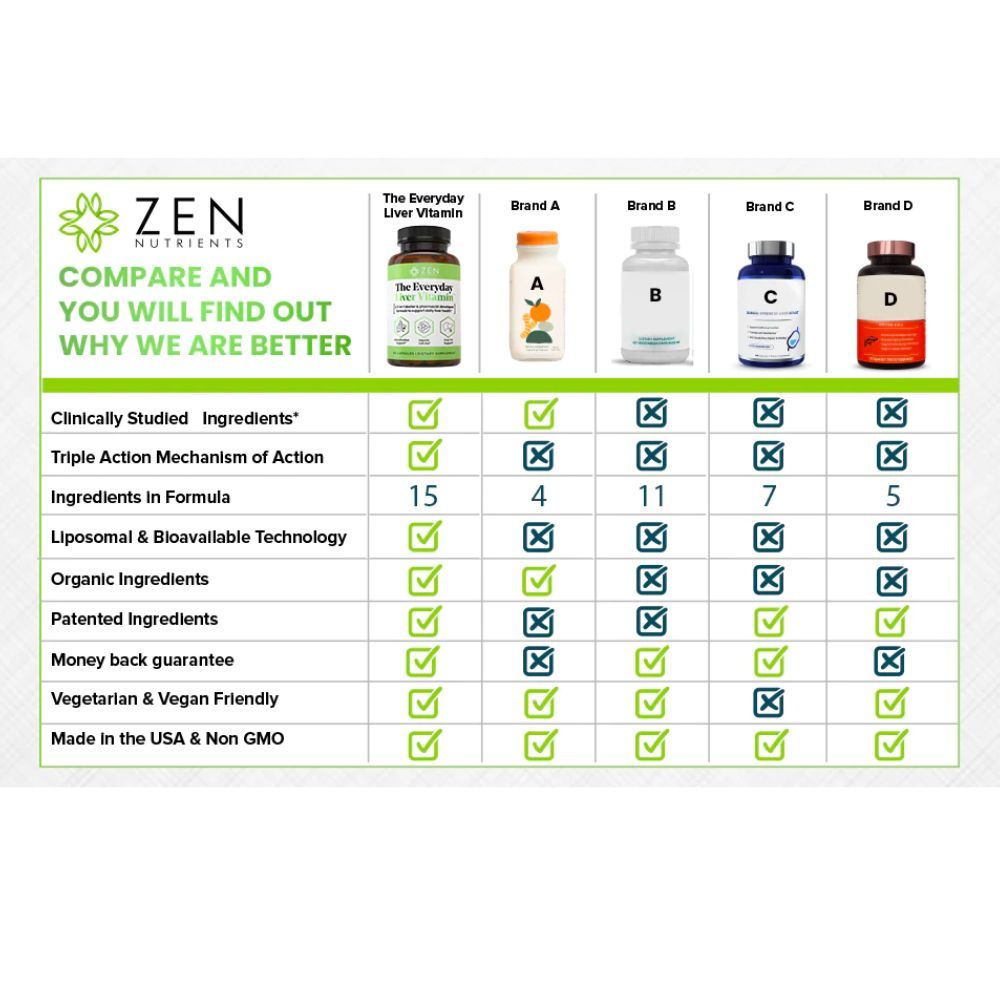The liver is one of the most crucial organs in our body, responsible for various vital functions such as detoxification, metabolism, and digestion. It is often said that the health of our liver is a reflection of our overall well-being. With liver diseases being on the rise, it’s time to pay close attention to our liver health and adopt a proactive approach. But how can we ensure the optimal functioning of our liver? Enter the Everyday Liver Vitamin, a combination of essential nutrients that support liver function, and the importance of lifestyle factors in maintaining liver health.
This article will take you on a comprehensive journey to understand the essential nutrients required for optimal liver function, the role of dietary supplements, and the impact of lifestyle factors, such as alcohol consumption, diet, and exercise. Get ready to discover the secrets of maintaining a healthy liver and leading a vibrant life.
Key Takeaways
- The Everyday Liver Vitamin provides essential nutrients for optimal liver function.
- Lifestyle factors such as alcohol consumption, diet and exercise can have a significant effect on liver health.
- Herbal supplements should be used with caution under the guidance of a healthcare professional to reduce risk of liver injury.
The Everyday Liver Vitamin: Essential Nutrients for Optimal Liver Function

The Everyday Liver Vitamin is a powerful mix of vital nutrients necessary for maintaining optimal liver function and supporting the prevention of digestive and kidney diseases. This unique combination includes fat-soluble vitamins, B-complex vitamins, and minerals, all working in harmony to ensure your liver remains healthy and strong.
We’ll delve into the specifics of these crucial nutrients and their implications on liver function. Next, we examine the role of fat-soluble vitamins, B-complex vitamins, and minerals in liver health and their contribution to the organ’s optimal functioning. We’ll also delve into potential hazards linked to overconsumption of these nutrients, providing precautionary measures to ensure balanced intake.
Fat-Soluble Vitamins: Vitamin A, D, E, and K
Fat-soluble vitamins, also known as fat soluble vitamin, are crucial for maintaining liver health as they play vital roles in various liver functions. These vitamins include:
- Vitamin A
- Vitamin D
- Vitamin E
- Vitamin K
These vitamins are essential in preventing liver cirrhosis and promoting overall liver health.
However, it is equally important to be cautious about the consumption of these vitamins, as excessive intake can lead to liver damage. For instance, high doses of vitamin A have been associated with liver toxicity and hepatomegaly, as seen in a case of a woman with psoriasis who was treated with excessive vitamin A.
On the other hand, vitamins D, E, and K exhibit protective effects on the liver. Here’s how each vitamin benefits the liver:
- Vitamin D modulates the immune system, reduces inflammation, and protects the liver from harm.
- Vitamin E shields the liver from oxidative damage.
- Vitamin K regulates blood clotting and reduces the risk of liver disease.
B-Complex Vitamins: B1, B2, B3, B6, B9, and B12
B-complex vitamins are a group of eight essential vitamins that contribute significantly to liver function and overall health. These vitamins, including B1, B2, B3, B6, B9, and B12, are known to reduce liver inflammation and scarring, enhance liver function, and potentially address non-alcoholic fatty liver disease.
Each of these vitamins plays a specific role in supporting liver function. For example:
- B1 aids in converting carbohydrates into energy
- B2 helps break down fats and proteins
- B3 assists in carbohydrate metabolism
- B6 supports red blood cell production
- B9 is involved in DNA synthesis
- B12 plays a crucial role in producing healthy red blood cells, which are vital for optimal liver function.
In particular, vitamin B12 is of utmost importance for liver health, as it helps generate healthy red blood cells, which are critical for liver function.
Minerals: Zinc, Selenium, and Magnesium
Just like vitamins, minerals also play a significant role in maintaining liver health and preventing liver-related issues. Zinc, selenium, and magnesium are essential minerals that contribute to the optimal functioning of the liver and the prevention of kidney diseases.
Zinc is crucial for cell division, DNA synthesis, and immune function. Selenium is a vital trace mineral that protects the liver from oxidative damage and supports the body’s natural detoxification processes.
Magnesium, on the other hand, plays a critical role in regulating metabolism and is fundamental for the optimal functioning of the liver.
Dietary Supplements for Liver Health
In addition to the Everyday Liver Vitamin, certain dietary supplements, such as milk thistle extract, turmeric, and N-acetylcysteine (NAC), may provide additional support for liver function. These supplements have shown potential benefits in promoting liver health, but it is essential to note that more research is needed to establish their effectiveness.
Next, we’ll examine these dietary supplements individually, highlighting their potential benefits and the ongoing need for research to substantiate their role in promoting liver health.
Milk Thistle Extract
Milk thistle extract is a popular herbal supplement for liver health, with its active component, silibinin, acting as an antioxidant to counteract free radicals associated with inflammation. However, studies like the Cochrane Review and a 2017 systematic review have indicated that while silymarin supplementation may lead to minimal decreases in liver enzymes, these benefits are not clinically meaningful.
Despite the limitations of research on milk thistle, some studies have shown promising results. For example, a study found that taking 420 milligrams of silymarin daily for four weeks decreased the risk of drug-induced liver injury by 28% in individuals taking antituberculosis medications.
While milk thistle extract may offer some liver health benefits, it is essential to use it with caution and under the guidance of a healthcare professional.
Turmeric (Curcumin)
Turmeric, a spice commonly used in Indian and Asian cuisine, contains the active compound curcumin, which is responsible for its many health benefits. Curcumin has been found to possess anti-inflammatory and antioxidant properties that may benefit liver health.
Research on turmeric and liver health has shown promising results. Turmeric has been found to:
- Help treat nonalcoholic fatty liver disease
- Slow down hormone leptin and high sugar levels
- Reduce liver damage
- Improve liver enzymes
However, it is essential to use turmeric supplements with caution and under the guidance of a healthcare professional.
N-Acetylcysteine (NAC)
N-acetylcysteine (NAC) is an antioxidant amino acid that exhibits antioxidant and anti-inflammatory properties, potentially protecting the liver from harm. NAC has been found to elevate glutathione levels, an effective antioxidant that reduces oxidative stress in the liver.
NAC has shown potential in promoting liver health by helping with detoxification, preventing liver damage, and enhancing liver function. However, just like other dietary supplements, it is essential to use NAC with caution and under the supervision of a healthcare professional.
Lifestyle Factors Affecting Liver Health

While the Everyday Liver Vitamin and dietary supplements can provide essential nutrients for liver health, lifestyle factors also play a significant role in maintaining a healthy liver. Alcohol consumption, diet, and exercise can all significantly impact liver function and overall health.
We will now turn our attention to:
- The impact of alcohol consumption on liver health
- The significance of a nutrient-rich balanced diet, as recommended by the food and nutrition board
- The role of regular exercise and weight management in preventing liver diseases such as nonalcoholic fatty liver disease (NAFLD)
Alcohol Consumption

Limiting alcohol consumption is crucial for maintaining liver health and preventing liver diseases such as fatty liver disease, alcoholic hepatitis, and cirrhosis. Excessive alcohol consumption can also increase the risk of developing liver cancer.
The Dietary Guidelines for Americans 2015-2020 recommend that women consume no more than one drink per day and men not exceed two drinks per day. Heavy alcohol use, defined as eight or more drinks a week for women and 15 or more drinks a week for men, can have detrimental effects on liver health and lead to conditions such as steatosis, or fat accumulation in the liver.
Limiting alcohol intake is a crucial step in maintaining liver health and preventing liver disease.
Diet and Nutrition

A balanced diet rich in essential nutrients can support liver function and overall health. Consuming a diet that is low in saturated fats and added sugars can help decrease the risk of developing fatty liver disease.
Incorporating fruits, vegetables, and whole grains into your diet can assist in promoting liver health. The essential nutrients required for optimal liver health include fat-soluble vitamins (Vitamin A, D, E, and K), B-complex vitamins (B1, B2, B3, B6, B9, and B12), and minerals (zinc, selenium, and magnesium).
By focusing on a balanced diet and maintaining a healthy lifestyle, you can support your liver function and prevent liver-related issues.
Exercise and Weight Management

Regular exercise and weight management can help prevent liver diseases, such as nonalcoholic fatty liver disease (NAFLD). Exercise may also assist in reducing inflammation and enhancing overall liver health.
Engaging in regular physical activity and maintaining a healthy weight can assist in decreasing the likelihood of developing fatty liver disease. A minimum of 30 minutes of moderate-intensity physical activity per day is recommended to support liver health and prevent liver-related issues.
Recognizing and Preventing Liver Disease
Early detection and prevention of liver diseases are essential for maintaining liver health and function. Most individuals remain asymptomatic in the early stages of liver disease, but medical practitioners can detect early signs of liver damage during annual checkups and routine screening appointments.
We will now shift our focus to the identification and prevention of common liver diseases, including nonalcoholic fatty liver disease (NAFLD), alcoholic liver disease, and viral hepatitis. Understanding these conditions and taking appropriate preventive measures can help maintain liver health and prevent the onset of liver diseases.
Nonalcoholic Fatty Liver Disease (NAFLD)
Nonalcoholic fatty liver disease (NAFLD) is a common liver condition characterized by the accumulation of fat in the liver, resulting in inflammation and scarring, which can eventually lead to liver fibrosis. NAFLD is the most prevalent form of chronic liver disease in the United States.
Preventing NAFLD involves lifestyle modifications, such as:
- Reducing alcohol intake
- Sustaining a healthy weight
- Consuming a balanced diet low in saturated fat and high in fiber
- Regular exercise, with a minimum of 30 minutes of moderate-intensity physical activity per day recommended
These measures can help prevent the onset of NAFLD.
Alcoholic Liver Disease
Alcoholic liver disease is a condition caused by excessive alcohol consumption that can result in liver damage. The consequences of alcoholic liver disease may include cirrhosis, liver failure, and, in extreme cases, death.
Preventing alcoholic liver disease involves:
- Limiting alcohol consumption
- Consuming a nutritious diet
- Engaging in regular physical activity
- Maintaining a healthy body weight
These lifestyle modifications may be beneficial in preventing alcoholic liver disease.
Viral Hepatitis

Viral hepatitis is an inflammation of the liver caused by a viral infection, such as the hepatitis A, B, or C virus. Preventing viral hepatitis involves vaccination and practicing good hygiene.
Individuals should consult their physician if they display indications of liver disease or suspect they may have been exposed to a hepatitis virus. By being aware of the risks and taking appropriate preventive measures, one can maintain liver health and prevent the onset of liver diseases.
Drug-Induced Liver Injury: Risks and Precautions

Drug-induced liver injury, which can result from over-the-counter medications, prescription medications, and herbal supplements, is a concerning issue for liver health. It’s essential to be aware of the risks associated with these medications and take appropriate precautions to prevent liver damage.
Next, we’ll address the risks and precautions tied to over-the-counter medications, prescription drugs, and herbal supplements. By understanding the potential dangers of these medications and following appropriate guidelines, one can prevent drug-induced liver injury and maintain liver health.
Over-the-counter Medications

Over-the-counter medications, such as acetaminophen, can cause liver damage if taken in excessive amounts or combined with alcohol. It is important to follow the label instructions and not exceed the recommended dose when taking over-the-counter medications.
By being cautious with the use of over-the-counter medications and avoiding combining them with alcohol, one can minimize the risk of liver damage. Always consult a healthcare professional if you have any concerns regarding the use of over-the-counter medications and their impact on liver health.
Prescription Medications
Prescription medications can also cause liver injury, so it’s crucial to follow your healthcare provider’s instructions and monitor liver function regularly. By adhering to the prescribed dosage and being aware of potential drug interactions, one can minimize the risk of liver injury.
It is important to consult with your healthcare provider if you have any concerns regarding the use of prescription medications and their impact on liver health. Regular monitoring of liver function can help identify any potential liver injury that may be caused by prescription medications.
Herbal Supplements
Herbal supplements, while often considered natural and safe, can also cause liver damage. It is essential to use herbal supplements with caution and under the guidance of a healthcare professional to prevent liver injury.
Some examples of herbal supplements that can potentially cause liver damage include kava, comfrey, and chaparral. By being aware of the potential risks associated with herbal supplements and following appropriate guidelines, one can prevent liver injury and maintain liver health.
Summary
In conclusion, maintaining liver health is of utmost importance for overall well-being. The Everyday Liver Vitamin, along with a balanced diet, regular exercise, and limited alcohol consumption, can provide essential nutrients required for optimal liver function. Additionally, being cautious with the use of over-the-counter medications, prescription medications, and herbal supplements can help prevent drug-induced liver injury.
By recognizing and preventing liver diseases, such as nonalcoholic fatty liver disease, alcoholic liver disease, and viral hepatitis, one can ensure a healthy liver and lead a vibrant life. Remember, a healthy liver is the cornerstone of a healthy body. Take charge of your liver health today and pave the way for a healthier tomorrow.
If you're ready to give your body the love it deserves, check out this special item above. We are sure you won't be disappointed!
As always, consult with your physician before starting any new supplement regimen to check about potential interactions with other supplements or medications. The information presented in this document is purely for educational purposes and should not be construed as medical advice.
While every effort has been made to ensure the accuracy and reliability of the information provided, all health-related decisions should be made in consultation with a qualified healthcare professional. The author does not take any liability for the health decisions made by the reader.
Dietary supplements are not regulated the way drugs are in the United States. This means the Food and Drug Administration (FDA) does not approve them for safety and effectiveness before products are marketed. When possible, choose a supplement tested by a trusted third party, such as Consumer Labs, USP, or NSF.
Frequently Asked Questions
What is the best vitamin for the liver?
Vitamins B (B6, B9 and B12), D and A, in addition to glutathione, milk thistle, selenium and NAC have all been found to help support healthy liver function. Vitamin D is particularly important for preventing inflammatory and metabolic diseases that affect the liver.
Is it okay to take liver supplement everyday?
It is advisable to take liver supplements in moderation, as the dosage may vary depending on the ingredients and their concentrations. Too much of it could cause side effects.
How can I prevent nonalcoholic fatty liver disease (NAFLD)?
To prevent NAFLD, reduce alcohol intake, maintain a healthy weight, and eat a balanced diet.
What are some examples of herbal supplements that can potentially cause liver damage?
Herbal supplements such as kava, comfrey and chaparral have been known to cause liver damage. It is important to be aware of the potential risks associated with taking these supplements. Research the ingredients and potential side effects before taking any herbal supplement. Talk to your doctor if you have any questions or concerns
How can I minimize the risk of liver injury caused by over-the-counter medications?
To minimize the risk of liver injury, take over-the-counter medications as directed, do not exceed the recommended dose, and avoid combining them with alcohol.











